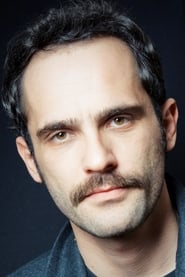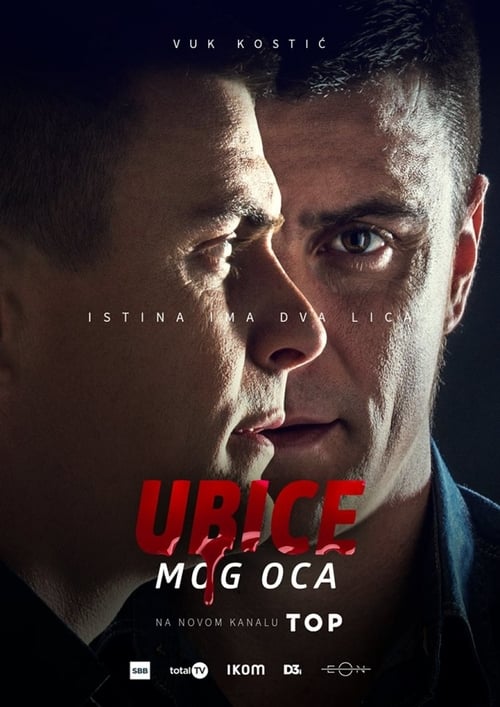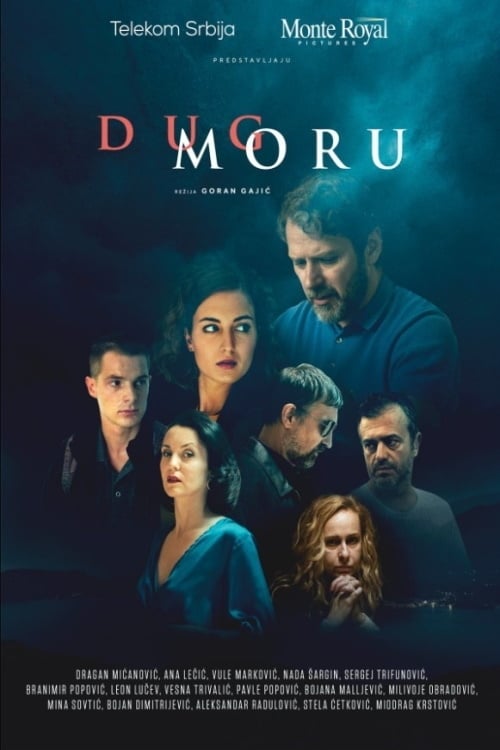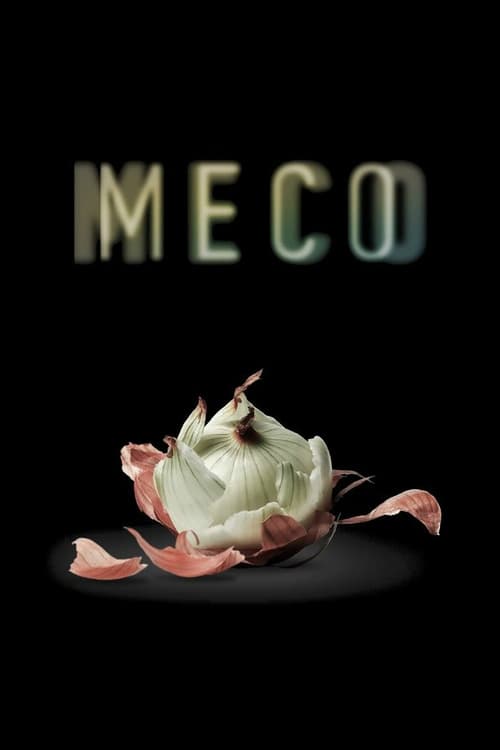
Ask Your Own Question
What is the plot?
In the second episode of "Besa," the story picks up with the aftermath of the events from the previous episode. The protagonist, a man named Kreshnik, is grappling with the emotional weight of his decisions. He is haunted by the consequences of his actions, particularly regarding his family and the obligations he feels towards them. The episode opens with Kreshnik in a dimly lit room, reflecting on his past choices, which sets a somber tone for the unfolding narrative.
As the day progresses, Kreshnik receives a visit from his brother, who is concerned about the escalating tensions in their community. They engage in a heated discussion about loyalty and the importance of family ties. Kreshnik's brother urges him to take a stand against the growing violence, but Kreshnik is torn between his desire for peace and the pressure to conform to the expectations of their culture. This internal conflict is palpable, showcasing Kreshnik's struggle to balance his personal beliefs with familial loyalty.
Later, Kreshnik attends a gathering where local leaders discuss the ongoing conflict. The atmosphere is charged with tension as different factions express their grievances. Kreshnik listens intently, absorbing the anger and frustration of those around him. He feels the weight of responsibility as he realizes that his voice could influence the direction of their community. However, he remains hesitant to speak up, fearing the repercussions of taking a stand.
In a pivotal moment, Kreshnik's childhood friend, who has become embroiled in the conflict, confronts him about his indecision. This confrontation forces Kreshnik to confront his fears and the reality of the situation. The emotional stakes rise as Kreshnik grapples with the idea of betrayal and loyalty. He ultimately decides to take a risk and speaks out against the violence, advocating for a peaceful resolution. His words resonate with some in the crowd, but they also draw ire from others who are more entrenched in their beliefs.
As tensions escalate, Kreshnik finds himself in a precarious situation. He is approached by a group of men who are aligned with a more aggressive faction. They challenge him, questioning his loyalty and intentions. Kreshnik stands his ground, but the confrontation quickly turns physical. A fight breaks out, and Kreshnik is forced to defend himself. The scene is chaotic, with punches thrown and shouts echoing in the air. Kreshnik's determination to stand up for his beliefs is evident as he fights back, fueled by a mix of fear and resolve.
After the fight, Kreshnik is left bruised and shaken. He retreats to a quiet place to collect his thoughts, reflecting on the violence he has just experienced. The emotional toll is heavy, and he questions whether his actions will lead to any meaningful change. This moment of introspection highlights Kreshnik's vulnerability and the weight of his choices.
The episode concludes with Kreshnik returning home, where he is met with concern from his family. They notice his injuries and the turmoil in his eyes. Kreshnik's internal struggle is mirrored in the worried expressions of his loved ones, emphasizing the impact of his decisions on those around him. As he sits with his family, the episode ends on a note of uncertainty, leaving viewers to ponder the consequences of Kreshnik's choices and the path that lies ahead for him and his community.
What is the ending?
In the ending of "Besa," Season 1, Episode 2, the tension escalates as the characters confront their choices and the consequences of their actions. The episode concludes with a dramatic standoff that leaves the main characters grappling with their fates, setting the stage for future conflicts.
As the episode unfolds, we find ourselves in a dimly lit warehouse, where the atmosphere is thick with tension. The air is heavy with the weight of unspoken words and unresolved conflicts. The main character, a man named Luan, stands at the center of this charged environment, his face a mask of determination mixed with fear. He is torn between loyalty to his family and the moral dilemmas that have arisen from their actions.
In this scene, Luan is confronted by his brother, who has been deeply affected by the choices they have made. The brother's eyes are filled with a mix of anger and betrayal, reflecting the emotional turmoil that has been brewing throughout the episode. Their conversation is heated, filled with accusations and pleas for understanding. Luan's internal struggle is palpable; he wants to protect his family but is also aware of the damage their decisions have caused.
As the confrontation escalates, the tension reaches a breaking point. The warehouse door bursts open, and a group of armed men enters, their intentions clear. The atmosphere shifts from one of familial conflict to a life-or-death situation. Luan's heart races as he realizes that the stakes have never been higher. He must now choose between fighting for his family or finding a way to escape the impending violence.
In the chaos that ensues, Luan's brother is caught in the crossfire, and the scene becomes a whirlwind of gunfire and shouts. Luan's desperation grows as he tries to reach his brother, but the chaos pulls them apart. The emotional weight of the moment is heavy; Luan's face reflects a mix of horror and regret as he witnesses the consequences of their choices unfold before him.
As the dust settles, Luan is left standing amidst the wreckage, his brother injured but alive. The relief is short-lived, as the reality of their situation sinks in. They have survived, but the bond between them has been irrevocably altered. Luan's expression shifts from relief to despair as he realizes that their lives will never be the same again.
The episode closes with Luan looking out into the distance, his mind racing with thoughts of what lies ahead. The camera lingers on his face, capturing the complexity of his emotions--fear, guilt, and a flicker of hope. The final shot fades to black, leaving viewers with a sense of uncertainty about the future and the choices that will define these characters moving forward.
In summary, the ending of "Besa," Season 1, Episode 2, encapsulates the intense emotional struggles of the characters, particularly Luan and his brother, as they navigate the consequences of their actions in a world fraught with danger and moral ambiguity.
Is there a post-credit scene?
In "Besa," season 1, episode 2, there is no post-credit scene. The episode concludes without any additional content after the credits roll. The focus remains on the unfolding narrative and character development throughout the episode, leaving no extra scenes or teasers for viewers to engage with after the main story concludes.
What motivates the main character, Dritan, in Episode 2?
In Episode 2, Dritan is driven by a deep sense of loyalty to his family and a desire to protect them at all costs. His internal conflict is palpable as he grapples with the consequences of his actions and the weight of his responsibilities.
How does the relationship between Dritan and his brother evolve in this episode?
The relationship between Dritan and his brother becomes increasingly strained in Episode 2. Dritan's protective instincts clash with his brother's reckless behavior, leading to heated arguments that reveal their differing views on family loyalty and personal freedom.
What significant event occurs that changes the dynamics of the characters' relationships?
A pivotal event in Episode 2 is when Dritan is forced to confront a rival gang, which escalates tensions not only with the gang but also within his own family. This confrontation serves as a catalyst for revealing hidden resentments and fears among the characters.
How does the character of the police officer impact the storyline in Episode 2?
The police officer in Episode 2 serves as a looming threat to Dritan and his family. His relentless pursuit of justice creates a sense of urgency and fear, pushing Dritan to make desperate choices that further complicate his situation.
What emotional struggles does Dritan face throughout Episode 2?
Throughout Episode 2, Dritan experiences intense emotional turmoil as he navigates his role as protector while feeling the weight of his decisions. His fear of failing his family and the guilt of his past actions haunt him, leading to moments of vulnerability that reveal his inner conflict.
Is this family friendly?
"Besa," season 1, episode 2, contains several elements that may not be suitable for children or sensitive viewers. Here are some potentially objectionable aspects:
-
Violence: The episode includes scenes of physical confrontations and threats, which may be intense and unsettling for younger audiences.
-
Emotional Turmoil: Characters experience significant emotional distress, including fear, anger, and betrayal, which could be upsetting for sensitive viewers.
-
Mature Themes: The narrative explores themes of loyalty, betrayal, and the consequences of crime, which may be complex and difficult for children to understand.
-
Language: There may be instances of strong language or harsh dialogue that could be inappropriate for younger viewers.
-
Tense Situations: The episode builds suspense through high-stakes scenarios that could provoke anxiety or fear.
These elements contribute to a mature tone that may not be suitable for all audiences, particularly children.























